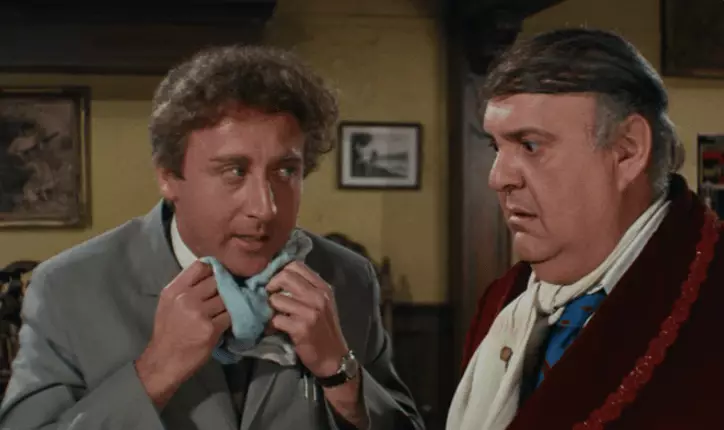The story behind Mel Brooks’ acclaimed musical adaptation of “The Producers” is one of both hesitation and eventual realization. Originally, Brooks was uncertain that his beloved 1967 film, which had earned him an Academy Award, warranted transformation into a musical. This skepticism raises relevant questions about artistic integrity and the need for creative reimagining within the entertainment industry. However, a persistent producer, David Geffen, played a crucial role in reshaping Brooks’ perspective, making one wonder how often masterpieces remain untapped without the relentless support of advocates in the arts.
Brooks recounted how Geffen’s unwavering enthusiasm continually nudged him toward embracing the project. This daily bombardment of encouragement led Brooks to reconsider his original stance—he initially viewed the film as complete as it was. This scenario underscores a significant dynamic in creative collaborations where the vision of one can often benefit immensely from the encouragement and belief of another.
Once Brooks dedicated himself to the musical, he co-wrote the script alongside Thomas Meehan and crafted an unforgettable score, including what would become one of the most infamous numbers, “Springtime for Hitler.” This juxtaposition of humor and shock illustrates Brooks’ masterful handling of controversial topics within his work. The narrative centers around the scheming Max Bialystock, who devises a plan to produce a catastrophic Broadway show, inadvertently leading to an unexpected success. The brilliance of such a premise lies in its audacity and ability to provoke laughter from the most unexpected of sources, highlighting the potential for satire to challenge societal norms.
Upon its debut in 2001, “The Producers” left an indelible mark on Broadway, winning an astonishing 12 Tony Awards and receiving critical acclaim. The New York Times’ characterization as a “sublimely ridiculous spectacle” encapsulates the essence of the production—an overwhelming celebration of comedic genius paired with a hint of absurdity. It is a testament to the strength of Brooks’ creative vision that the show not only drew audiences but also resonated on a global scale, showcasing the universal appeal of humor that defies boundaries.
In addition to his musical success, Brooks reminisced this week on social media about the late actor Gene Hackman, celebrating their shared connection through fellow actor Gene Wilder. This tribute not only highlights Brooks’ fond memories but also the importance of friendships and partnerships in an artist’s journey. The mention of Hackman’s role in “Young Frankenstein” serves as a reminder of the collaborative nature of film and theater, where casting choices can profoundly influence the final product.
As “The Producers” gears up for another round at London’s Garrick Theatre, one can’t help but reflect on the serendipity behind its inception. Had Brooks’ initial doubts triumphed over Geffen’s encouragement, audiences might have been deprived of one of the most iconic and successful musicals in theater history. This illuminating narrative serves as a powerful reminder that sometimes, the greatest successes stem from what we might initially resist, urging creators to stay open to the endless possibilities that collaboration offers.


Leave a Reply